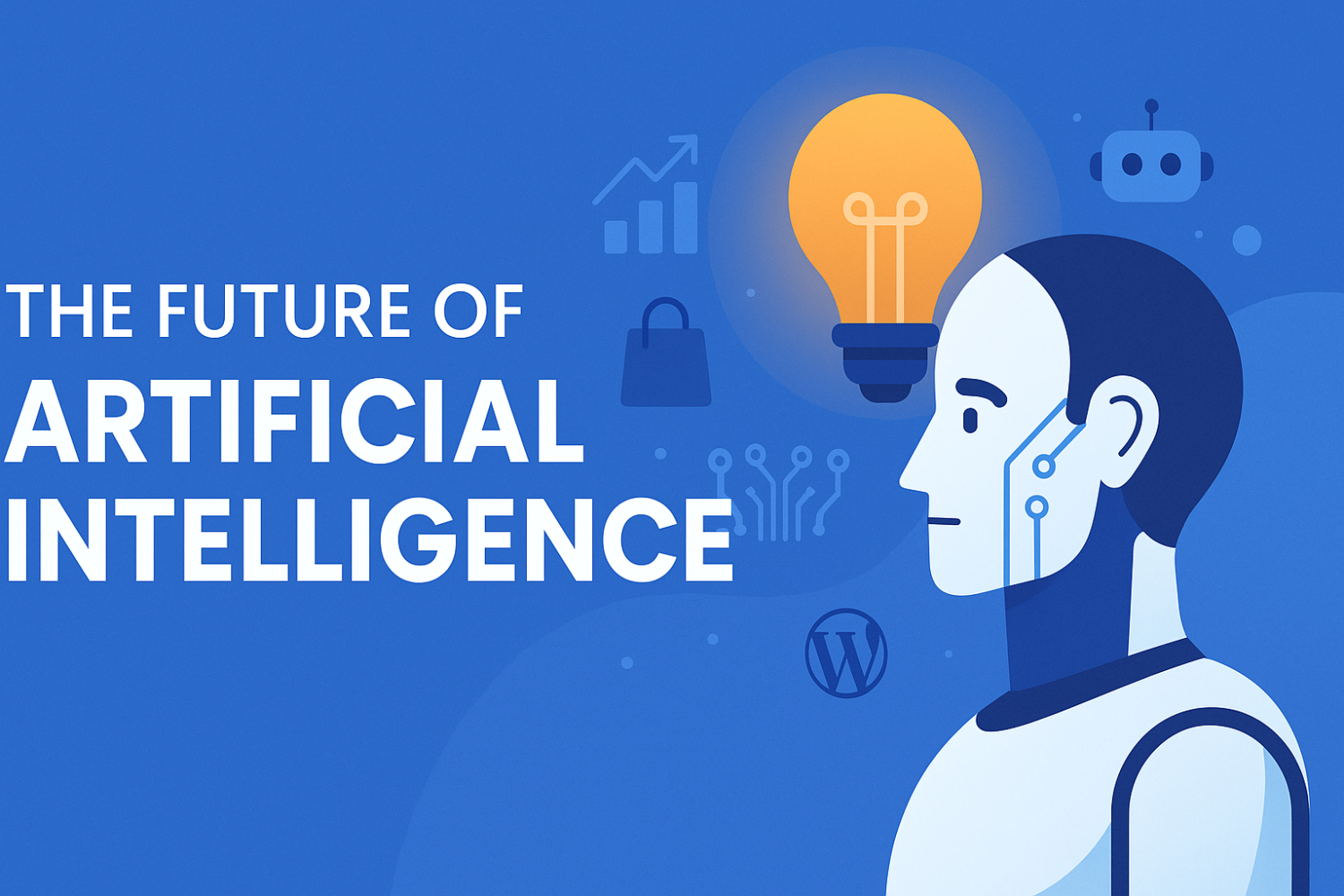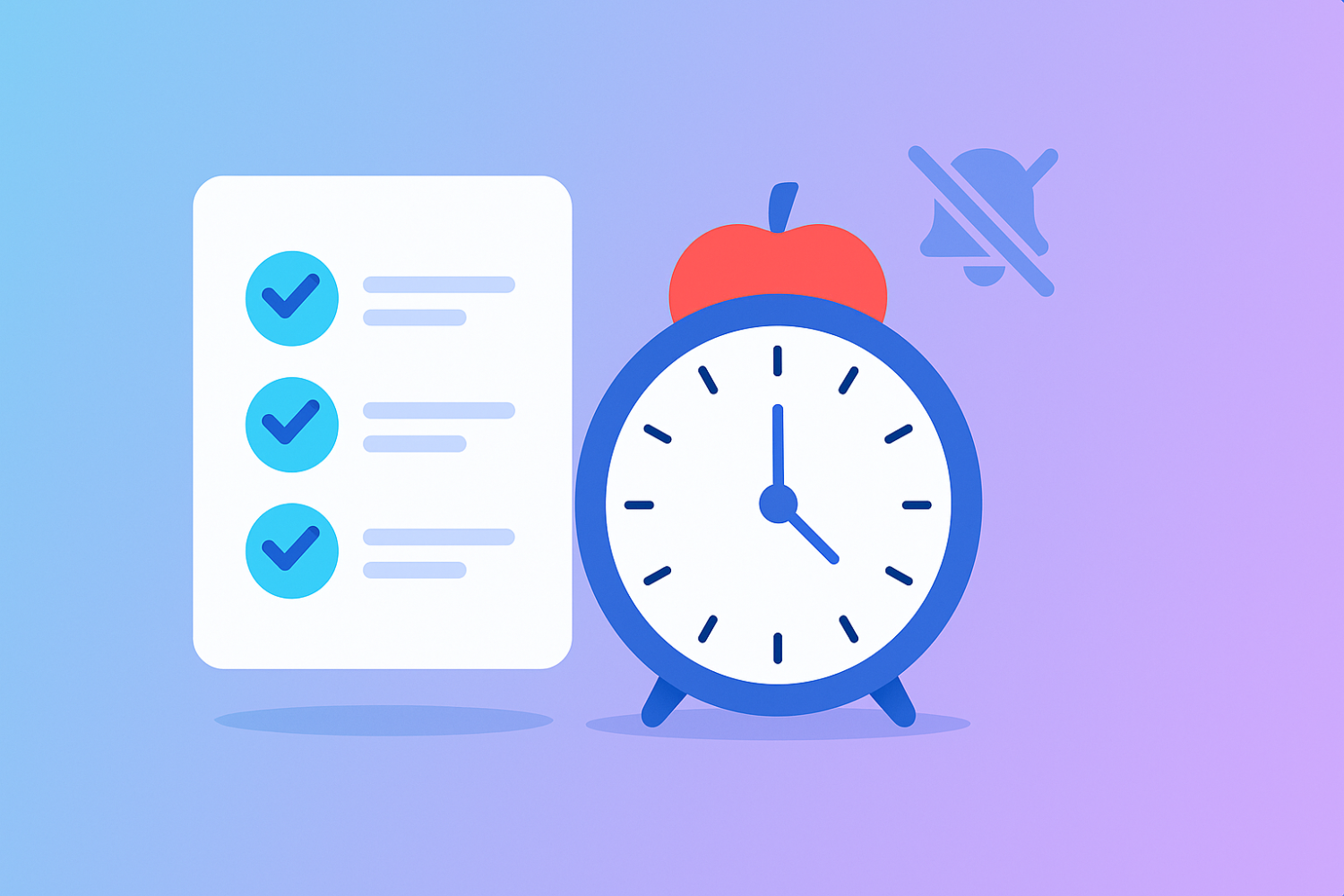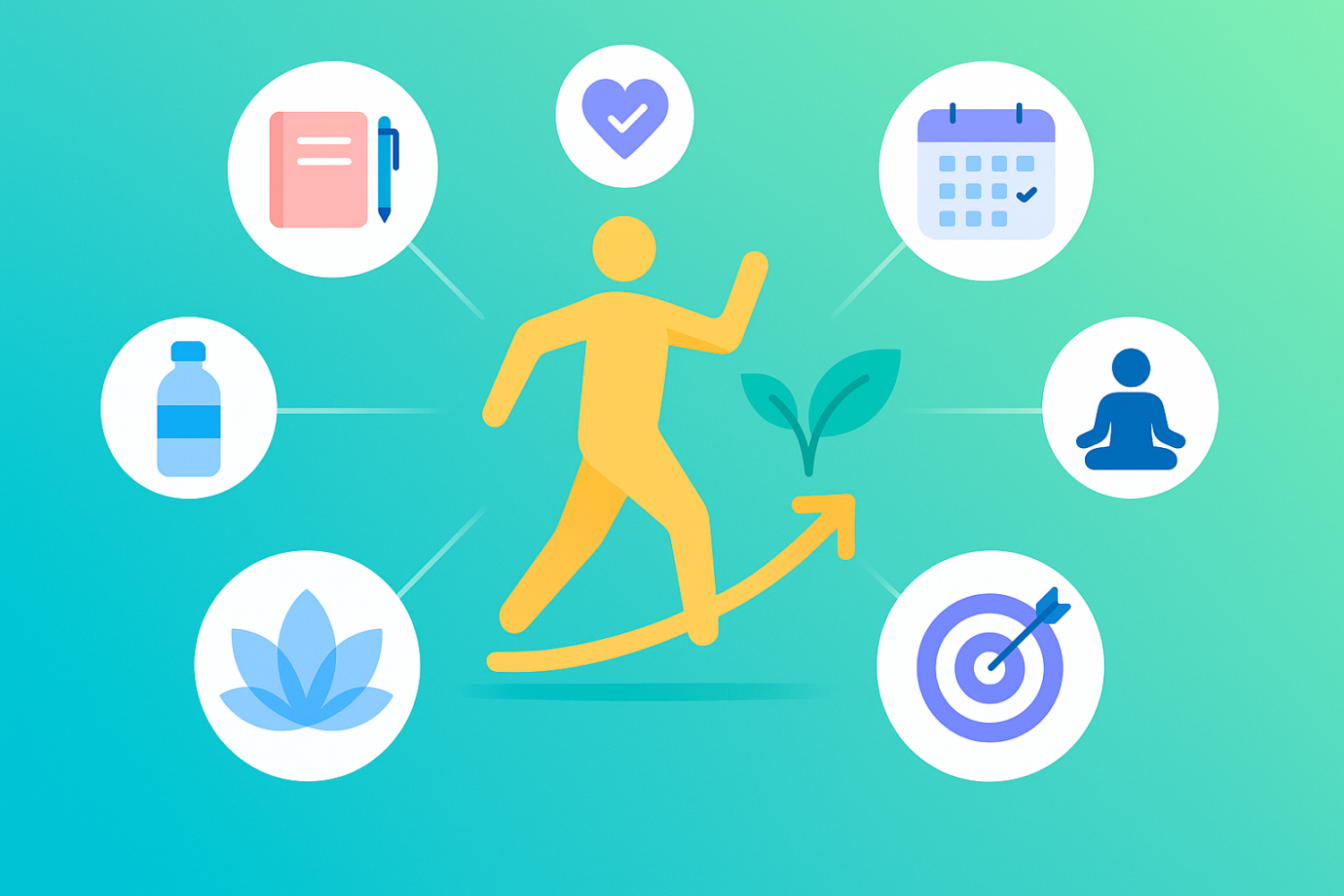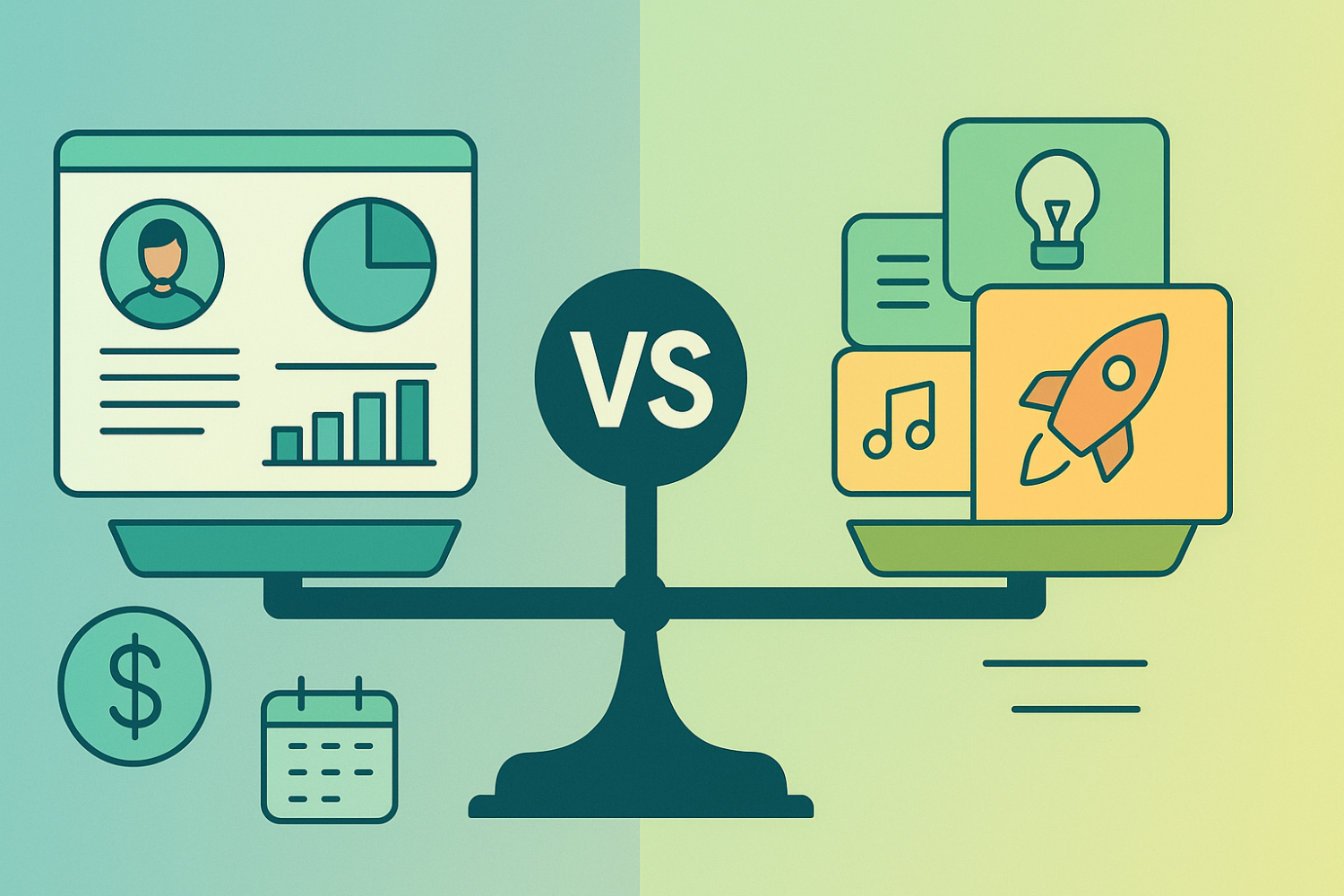How Artificial Intelligence Will Shape Our Everyday Lives by 2030

Introduction to Artificial Intelligence and Its Evolution
Artificial intelligence (AI) refers to the simulation of human intelligence in machines that are programmed to think, learn, and solve problems autonomously. The concept of AI has been around since the mid-20th century, with the term first being coined by John McCarthy in 1956 during a conference at Dartmouth College. Over the decades, AI has undergone significant transformations, moving from theoretical research to practical applications in various sectors.
Key milestones in AI technology include the development of early algorithms, such as the Logic Theorist in 1955, which was capable of solving mathematical problems. In the 1980s, the rise of expert systems represented another pivotal moment, as these systems enabled computers to emulate the decision-making abilities of human specialists in fields like medicine and finance. Fast forward to the 21st century, advancements in machine learning and neural networks have revolutionized AI capabilities, allowing for sophisticated data analysis and real-time learning from vast amounts of information.
Today, AI technology impacts numerous aspects of daily life, from virtual assistants and chatbots to more complex applications in healthcare and autonomous vehicles. As we look towards 2030, the future of AI is poised for even greater integration into our everyday experiences. Innovations in natural language processing, computer vision, and robotics are expected to enhance user interaction and enable smarter technologies. The evolution of artificial intelligence is not only anticipated to affect individual lifestyles but also to redefine industries and economies globally.
Understanding the historical context of artificial intelligence helps us appreciate its current trajectory and speculate on how AI will change the world by 2030. As emerging future technology trends continue to unfold, the pervasive role of AI in daily life will become increasingly evident, leading to transformative changes across a wide range of disciplines.
AI in the Workplace: Transformation of Jobs and Industries
The future of AI is set to profoundly change the landscape of work as we know it. By 2030, artificial intelligence technologies are expected to revolutionize various industries through the automation of mundane tasks, thus allowing human employees to focus on higher-value activities. This technological shift will significantly enhance productivity and efficiency in sectors such as manufacturing, healthcare, finance, and customer service.
Automation driven by AI will not only streamline existing processes but also lead to the emergence of innovative job roles. As traditional positions evolve or become obsolete, new opportunities will arise that emphasize the unique capabilities of human workers, such as creativity, critical thinking, and emotional intelligence. Roles in AI development, data analysis, and ethical oversight are expected to become increasingly prominent, which implies that employees will need to adapt by acquiring new skills and competencies.
Organizations are beginning to understand the potential impact of AI technology and are integrating these systems into their operations. Large corporations and startups alike are harnessing AI to gain competitive advantages, improve decision-making, and deliver personalized customer experiences. This integration of AI in daily life is not merely a trend but a fundamental shift in how businesses operate, necessitating a synergy between human and machine collaboration.
However, the transition to an AI-driven workforce is fraught with challenges. Companies must address the training needs of their employees to ensure they are equipped to work alongside AI technologies. Moreover, there is a pressing need for policies that support workers during this transformation, as emphasizing the balance between human ingenuity and AI efficiencies will ultimately dictate the future trajectory of work. Embracing this change will be crucial for industries aiming to thrive in the evolving job market shaped by AI by 2030.
The Future of Education: Personalized Learning with AI
As we approach the year 2030, the impact of artificial intelligence on education is expected to be profound, transforming the traditional learning environment into a more tailored and efficient experience. The future of AI in education lies in its ability to facilitate personalized learning. AI-driven tools and platforms are emerging that can analyze students' individual learning styles, paces, and preferences, allowing for a customized education experience that enhances engagement and success.
These advancements in AI technology are paving the way for systems that adapt in real-time to a learner's progress. For instance, intelligent tutoring systems can provide instant feedback, suggest additional resources, and adjust difficulty levels based on a student's performance. This dynamic approach not only helps to keep students motivated but also addresses their unique needs, ensuring that no learner is left behind. In this sense, the technology's impact on education is not just about efficiency, but also about inclusivity and accessibility.
Moreover, AI is poised to play a vital role in supporting teachers. By automating routine administrative tasks and data analysis, educators can focus more on facilitating learning rather than managing it. Additionally, AI can assist in curriculum development by identifying subject areas where students may struggle. This insight allows for the creation of tailored educational resources that cater specifically to learners' needs, ultimately improving overall educational outcomes.
Looking ahead, the future of education is closely intertwined with the advancements in AI technology. As these innovations continue to evolve, they are likely to revolutionize the learning experience, making education more personalized and adaptive. By harnessing the potential of AI, we are not only reimagining how education is delivered but also how it is experienced, ensuring that the next generation is equipped for success in an increasingly complex world.
AI in Healthcare: Revolutionizing Patient Care
Artificial intelligence is rapidly transforming the healthcare industry, introducing innovative solutions and significant advancements that promise to enhance patient care by 2030. One of the primary areas of impact is in diagnostics, where AI algorithms are increasingly being utilized to analyze complex medical data. Through machine learning, AI systems can identify patterns in imaging and laboratory results, enabling earlier and more precise diagnosis of conditions such as cancers, cardiovascular diseases, and more. This capability not only accelerates the diagnostic process but also contributes to better patient outcomes by facilitating timely interventions.
In addition to diagnostics, AI in daily life is making strides in patient monitoring through wearables and smart devices. These technologies enable continuous tracking of vital signs and health indicators, providing healthcare professionals with real-time data. This not only helps in managing chronic conditions but also empowers patients to take an active role in their health management. The integration of AI technology in remote monitoring systems allows for quicker responses in case of health deterioration, ultimately saving lives and improving patient experiences.
Furthermore, the personalization of treatment plans is another significant advancement driven by AI. By analyzing vast amounts of patient data, including genetic information and lifestyle factors, artificial intelligence 2030 could facilitate tailored treatment strategies that align closely with individual needs. This shift toward personalized medicine is poised to improve efficacy and reduce adverse effects, enhancing the overall quality of care.
Lastly, AI is streamlining administrative processes within healthcare systems. From automating appointment scheduling to optimizing resource allocation, AI technology impact extends beyond clinical applications. By enhancing operational efficiencies, healthcare providers can devote more resources to patient care rather than administrative tasks.
In conclusion, the future of AI in healthcare presents remarkable opportunities to revolutionize patient care, from enhanced diagnostics to personalized treatments and improved operational efficiencies. As we advance toward 2030, the integration of AI is set to reshape the healthcare landscape significantly, ultimately improving health outcomes and the overall patient experience.
Daily Activities: Smart Homes and AI Assistants
As we look toward the future of AI, one of the most impactful advancements can be observed in the realm of smart homes and AI assistants. These technologies are not merely conveniences; rather, they are reshaping our daily lives by enhancing convenience, safety, and energy efficiency in our home environments. By 2030, the integration of artificial intelligence into our domestic spaces is expected to be ubiquitous, effectively transforming how we conduct daily activities.
Smart home devices, such as thermostats, security cameras, and lighting systems, leverage AI algorithms to anticipate our needs and preferences. This not only increases energy efficiency by optimizing power consumption but also contributes to creating a safer living environment. For example, AI-enabled security systems can recognize unusual patterns and alert homeowners to potential threats, ensuring a proactive approach to home safety. In addition, these AI technologies facilitate remote monitoring, thus allowing homeowners to manage their properties from anywhere in the world, further enhancing peace of mind.
AI personal assistants, such as voice-activated devices, play a pivotal role in managing daily tasks. These AI-driven systems assist in scheduling, reminders, and even controlling other smart devices within the home. The seamless integration of AI technology into our routines means that mundane tasks can be automated, enabling individuals to focus on more important aspects of their lives. Whether it is adjusting home lighting based on the time of day or orchestrating a perfect home environment for work and relaxation, AI assists us in simplifying daily routines.
The future technology trends indicate that the reliance on AI in daily life will only intensify as we approach 2030. By embracing these innovations, we can expect a remarkable enhancement in our overall quality of life. In conclusion, the synergy between smart home technology and AI personal assistants illustrates how artificial intelligence will change the world, effectively reshaping our everyday experiences.
Ethical Considerations and Challenges of AI Integration
The rapid advancement of artificial intelligence (AI) technology raises significant ethical considerations and challenges that must be addressed as we approach 2030. As AI becomes increasingly integrated into daily life, concerns regarding privacy, job displacement, and algorithmic bias take center stage. For instance, the deployment of AI in sectors like healthcare and finance mandates rigorous discussions about data privacy. How personal data is collected, processed, and stored poses risks to user confidentiality, potentially leading to misuse or unauthorized access. Ensuring robust privacy protections will be crucial in maintaining public trust in AI systems.
Moreover, the impact of AI technology on employment cannot be overlooked. Many fear that automation and AI will displace a substantial number of jobs, particularly in sectors susceptible to technological replacements. A clear example is the manufacturing industry, where robots are already taking over roles traditionally filled by human workers. As we envision the future of AI, it is vital to address these concerns proactively, finding ways to adapt our workforce through reskilling and education, ensuring that humans remain relevant in an increasingly automated world.
Additionally, bias in AI algorithms poses another ethical challenge that must be confronted. AI systems can inadvertently perpetuate existing social biases if the data used to train them is not representative. This can lead to discriminatory outcomes, especially in sensitive applications like hiring or criminal justice. The importance of developing fair and unbiased AI systems cannot be overstated, as it directly impacts societal equity and justice.
Addressing these ethical challenges requires collaborative efforts among technology companies, policymakers, and the public. Establishing regulatory frameworks that prioritize ethical standards while fostering innovation will be essential to harness the potential of AI responsibly. Finding a balance between advancing future technology trends and ensuring societal well-being is imperative as we navigate the complexities surrounding artificial intelligence integration.
AI and Connectivity: The Role of the Internet of Things (IoT)
The emergence of artificial intelligence (AI) has drastically transformed the landscape of connectivity, predominantly through the deployment of the Internet of Things (IoT). By 2030, the interplay between AI and IoT is expected to revolutionize daily life, enhancing the way individuals interact with their environment and making systems more efficient and responsive. Smart devices are increasingly integrated into homes, communities, and workplaces, generating a vast amount of data that AI technologies can analyze to drive intelligent decision-making.
IoT devices, ranging from smart thermostats and security systems to connected appliances, facilitate the collection of data from various sources. As these devices communicate with each other, they create a network of interconnected systems that can adapt based on user preferences and real-time feedback. This network serves as the backbone for implementing AI applications, enabling a more seamless interaction between technology and its users. For instance, AI algorithms can analyze energy consumption patterns within a smart home to optimize heating and cooling systems, thereby reducing costs and improving comfort.
The impact of AI technology extends beyond the confines of private residences; it is also reshaping urban landscapes. Cities are increasingly adopting smart infrastructure powered by AI, helping to manage resources more effectively and improve the quality of life for residents. Traffic management systems equipped with AI can analyze data from connected vehicles and sensors to optimize traffic flow, minimizing congestion and enhancing public safety. As AI technology continues to evolve, its potential to enhance connectivity, automate tasks, and create responsive ecosystems becomes increasingly apparent.
In conclusion, the integration of AI with IoT technologies is poised to dramatically influence daily life by 2030. The collaborative capabilities of these technologies will not only streamline individual tasks but also foster interconnected environments that adapt to human needs, illustrating how AI will change the world in significant and profound ways.
Future Trends: What to Expect by 2030
The future of AI presents a rapidly evolving landscape where technological advancements are expected to dramatically alter everyday life by 2030. As we delve into the potential trends, it is crucial to consider both the advancements in AI technology and the societal shifts that will accompany them. One of the most significant transformations will be seen in the integration of artificial intelligence into various aspects of daily life, enhancing productivity and efficiency.
By 2030, AI in daily life is anticipated to be ubiquitous, with smart home devices relying on sophisticated algorithms to adapt to individual preferences. Imagine waking up to a home that adjusts the environment based on your sleep patterns, a kitchen that suggests recipes based on available ingredients, or even health monitoring devices that alert you in real time. These innovations will not only streamline routines but also promote healthier lifestyles, showcasing the profound impact of AI technology on personal well-being.
Moreover, the workplace will also witness seismic shifts. The rise of automation powered by AI is set to redefine job roles and responsibilities. While certain tasks may become obsolete, new opportunities will arise in AI management, maintenance, and enhancement. This evolution will necessitate a shift in skill sets, prompting educational institutions to re-evaluate training methods to prepare the workforce for the demands of artificial intelligence in 2030 and beyond.
Additionally, societal norms will inevitably shift as AI embeds itself into various sectors, including healthcare, finance, and transportation. The advent of autonomous vehicles and AI-driven systems will likely influence how we view privacy, security, and even our interactions with one another. The future technology trends may foster a society that increasingly relies on AI for decision-making processes, raising important ethical questions and challenges.
Ultimately, the impact of AI will extend well past simple enhancements to our daily routines; it will redefine our world as we know it. As we approach 2030, understanding these trends will be essential for adapting to the promising yet complex landscape shaped by artificial intelligence.
Conclusion: Embracing the AI-Driven Future
As we reflect on the transformative impact of artificial intelligence in daily life, it is evident that the future of AI holds immense potential to reshape various aspects of our existence by 2030. From enhancing productivity in the workplace to revolutionizing healthcare through predictive analytics, AI technology is set to evolve significantly. The integration of machine learning and automation will not only streamline tasks but also improve decision-making processes, thereby facilitating more informed choices in both personal and professional spheres.
The anticipated future technology trends suggest that AI will permeate our lives in numerous ways, becoming an indispensable tool for many individuals. For example, smart home devices powered by AI are already making day-to-day tasks more manageable and efficient. As we continue to witness the rapid development of AI innovations, it is crucial to remain informed about how these advancements can enhance our quality of life. Understanding the avenues through which AI will change the world enables us to adapt proactively rather than reactively.
Moreover, embracing the potential benefits that artificial intelligence brings does not come without responsibility. As we navigate through this changing landscape, ethical considerations surrounding the use of AI must be carefully addressed. Ensuring transparency, security, and fairness in AI applications will be vital in fostering public trust and acceptance. As society moves forward, striking a balance between leveraging AI technology impact and addressing its challenges will be essential to maximizing its advantages.
In conclusion, staying informed and open-minded about the capabilities of artificial intelligence will empower us to make the most of its applications in daily life. By embracing the AI-driven future, we not only stand to benefit from the conveniences it provides but also position ourselves as active participants in shaping the ethical framework and societal norms surrounding these emerging technologies.









